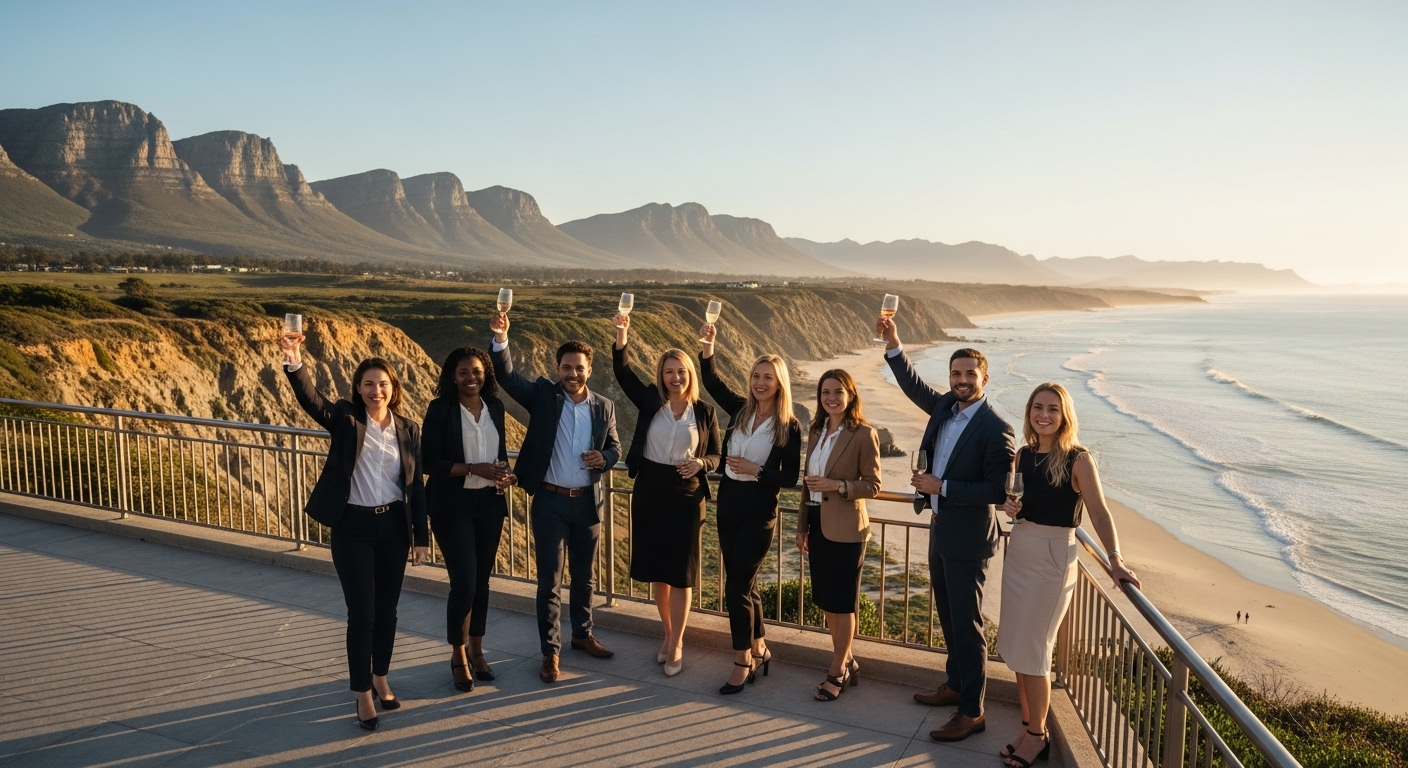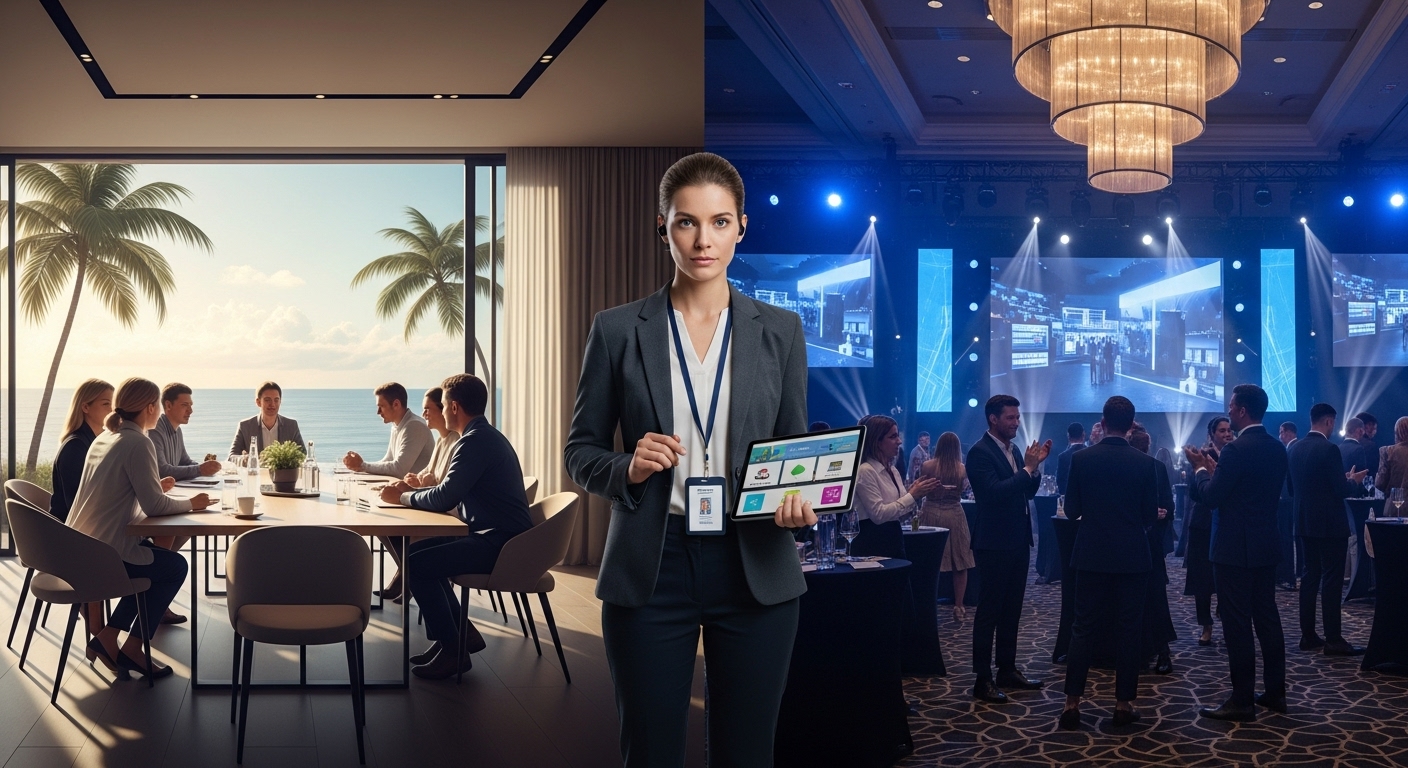
As businesses evolve, so do their values—and sustainability is now front and center. In 2025 and beyond, the future of sustainable corporate retreats is all about blending purpose, innovation, and eco-consciousness. Companies are reimagining how they gather, shifting from luxury-heavy getaways to meaningful, low-impact experiences that prioritize both people and the planet.
From carbon-neutral venues to digital detox experiences, today's corporate retreats reflect a deeper commitment to environmental stewardship and social responsibility. Here's a look at the top sustainability trends shaping the next generation of corporate getaways.

1. The Rise of Eco-Conscious Corporate Retreats
Sustainability is no longer optional—it's expected. Employees, customers, and stakeholders increasingly demand that companies walk the talk when it comes to environmental and social values. This shift is transforming the way organizations plan and host their retreats.
Why it matters:
- Stronger brand image: Hosting eco-friendly retreats sends a clear message that your brand is future-focused and values-driven.
- Employee loyalty: Millennials and Gen Z prefer working for companies that align with their environmental beliefs.
- Stakeholder trust: Sustainability in events builds credibility with investors, clients, and the public.
An eco-conscious corporate retreat doesn’t mean sacrificing experience—it means enhancing it with purpose and care.
2. Paperless Retreats Are the New Standard
Goodbye, printed agendas and paper sign-ins. In 2025, nearly every corporate retreat is going fully digital. This trend not only cuts down on waste but also makes organizing, sharing, and analyzing data much easier.
Smart digital tools leading the way:
- Event apps that host schedules, maps, speaker info, and live updates.
- QR codes for everything—from session check-ins to accessing menus and documents.
- Digital feedback forms that simplify post-retreat evaluation.
By eliminating paper waste, companies make a direct impact on reducing their footprint while enhancing the attendee experience. It's a win for both productivity and sustainability in events.
3. Carbon Neutrality: A New Industry Benchmark
One of the biggest benchmarks in the future of sustainable corporate retreats is achieving carbon neutrality. More companies are calculating the carbon footprint of their events and taking steps to reduce and offset their impact.
How they’re doing it:
- Measuring emissions: This includes everything from travel and accommodation to meals and swag.
- Choosing eco-friendly vendors: Partnering with hotels and service providers committed to green practices.
- Offsetting: Investing in trusted carbon offset programs like reforestation, renewable energy, or clean water initiatives.
Carbon-neutral retreats are no longer a niche concept—they’re fast becoming the gold standard in sustainable event planning.
4. Choosing Sustainable Retreat Venues
The location of a retreat plays a massive role in its environmental impact. In 2025, companies are choosing venues that go beyond comfort and scenery—they prioritize venues with eco-certifications and green infrastructure.
Key features to look for:
- LEED-certified spaces that reduce water and energy consumption.
- On-site renewable energy such as solar panels and geothermal heating.
- Waste management systems for composting and recycling.
Sustainable venues elevate a corporate retreat by aligning the experience with company values and reducing environmental stress.
5. Plant-Based Catering & Local Sourcing
Food is a central part of any retreat, and in 2025, more companies are going local and plant-based. This reduces carbon emissions from transport and supports small-scale, sustainable agriculture.
Popular trends include:
- Farm-to-table menus with seasonal produce.
- Vegetarian and vegan options as the default.
- Compostable packaging and zero single-use plastics.
This shift not only promotes sustainability in events but also supports health and inclusivity across dietary preferences.
6. Digital Detox Retreats: A Sustainable Wellness Trend
In a hyper-connected world, more retreats are promoting digital detox experiences to reduce screen fatigue and foster mindfulness. This wellness-oriented trend also supports environmental sustainability by reducing the energy consumption tied to tech use.
Common features:
- No-phone zones and offline activities
- Guided nature walks and eco-meditation sessions
- Emphasis on mental well-being and natural environments
Digital detox retreats create a deeper connection between attendees and nature—something the modern corporate retreat desperately needs.
7. Greener Transportation Solutions
Getting to and from a retreat location can be a significant source of emissions. To address this, businesses are adopting low-impact travel options.
Sustainable travel practices:
- Encouraging rail or EV travel over flights
- Partnering with transport companies using biofuel or electric fleets
- Offering carbon offset incentives for long-distance attendees
By rethinking travel, companies make a measurable contribution to the future of sustainable corporate retreats.
8. Zero-Waste & Circular Retreat Kits
Gone are the days of plastic-filled swag bags. Retreats in 2025 are embracing the circular economy by curating zero-waste kits that are reusable, recyclable, or biodegradable.
Examples include:
- Bamboo utensils and refillable water bottles
- Organic cotton totes and upcycled gifts
- Renting décor and AV equipment instead of buying
Less waste means less guilt—and a stronger reputation for environmental leadership.
9. Green Team Building with Purpose
Team-building activities are also going green. Many retreats are integrating corporate social responsibility (CSR) projects into the agenda.
Popular CSR-based team activities:
- Beach or trail cleanups
- Tree-planting and urban gardening
- Volunteering with local sustainability orgs
These activities give employees a sense of purpose while reinforcing the company’s commitment to the planet.
10. Measuring Sustainability Metrics
Data is power. The best way to improve sustainability in events is by tracking key performance indicators before, during, and after the retreat.
What companies are tracking:
- Total carbon footprint
- Waste diversion rate (recycled, composted, etc.)
- Water and energy usage
Tools like eco-calculators and sustainability dashboards help companies measure progress and set new goals for the next corporate retreat.
11. Training for Green Event Planning
A sustainable retreat starts with the people planning it. In 2025, companies are investing in training programs for event managers, vendors, and partners.
Training focuses on:
- Eco-friendly logistics and purchasing
- Waste reduction best practices
- Inclusivity and wellness in retreat design
Educated teams lead to more impactful retreats—and stronger long-term results.
12. The Future: What’s Next for Sustainable Retreats?
Looking ahead, we can expect even more innovation in the world of sustainable corporate retreats. Think immersive green technologies, carbon-negative venues, and retreats that contribute more than they consume.
Emerging trends:
- VR-powered hybrid retreats to cut travel emissions
- Blockchain for carbon credit transparency
- Nature-positive planning that regenerates the environment
The future of sustainable corporate retreats is about going beyond “doing less harm” and aiming to create a net-positive impact.
The shift toward sustainability in events is accelerating—and it’s reshaping the way we think about corporate retreats. In 2025 and beyond, successful retreats will be defined by their purpose, environmental impact, and alignment with modern values.
Choosing sustainable practices isn’t just good for the planet—it’s great for people, performance, and brand trust. The companies leading this transformation aren’t just planning retreats—they’re creating legacies.
FAQs
1. What makes a corporate retreat truly sustainable?
A sustainable retreat minimizes environmental impact, supports local communities, and aligns with broader ESG goals. This includes carbon-neutral planning, zero-waste policies, and responsible sourcing.
2. How do you calculate the carbon footprint of a corporate event?
You measure all emissions from travel, lodging, meals, and materials. Tools and sustainability consultants can help generate accurate data and offer strategies for offsetting.
3. Are digital detox retreats really effective?
Yes! Digital detoxes help improve focus, reduce stress, and encourage genuine human connection—making them a powerful team-building tool in today’s tech-heavy world.
4. What are the best locations for sustainable retreats in the USA?
Top picks include eco-resorts in California, green-certified lodges in Colorado, and coastal venues in Oregon that prioritize conservation and community impact.
5. How does sustainability in events impact company reputation?
Greatly. Hosting sustainable events demonstrates leadership, builds stakeholder trust, and shows that a company is invested in future generations—not just profits.






